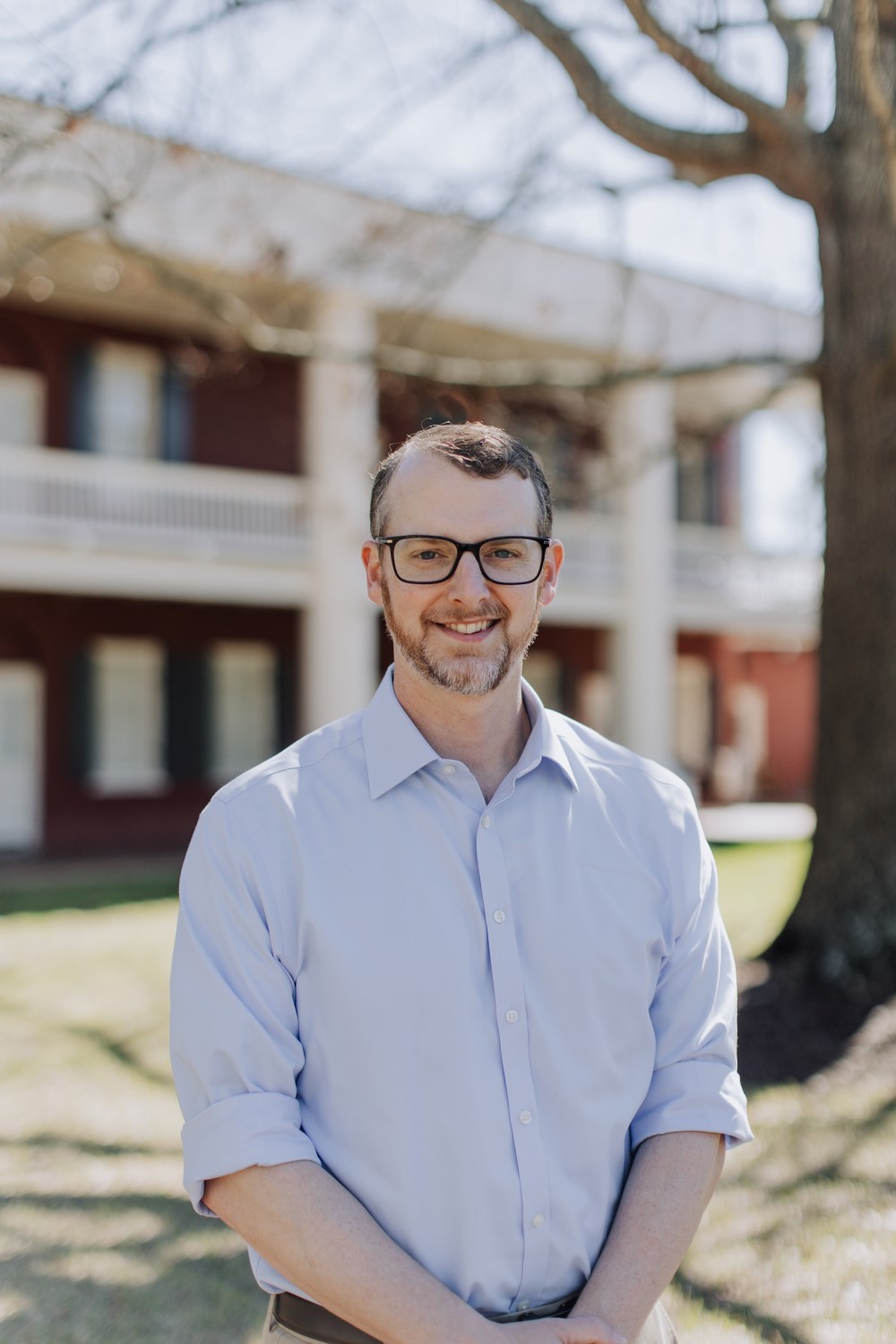Fusing high-level research and technology with community-centered care, Mary Bird Perkins Cancer Center is attracting and retaining the best and brightest, starting with its CEO.
Behind every life-changing cancer diagnosis are men and women who have dedicated their lives to helping patients become survivors. Mary Bird Perkins Cancer Center’s recently appointed President and CEO Jonas Fontenot, PhD, MBA, is one.
Transitioning to the cancer center’s top job in January, Fontenot has spent his 15- year career at Mary Bird Perkins connecting advancements in treatment to patients in communities throughout southeast Louisiana and southwest Mississippi. In fact, the opportunity to combine nationally-funded research and technology with community care is what has kept Fontenot at Mary Bird Perkins, even as other opportunities presented themselves.
“Years ago, I didn’t imagine that I’d end up working and remaining here, but that’s exactly what happened,” said Fontenot. “Mary Bird Perkins is just a really unique place with high expectations and truly gratifying professional opportunities.”
“Technology is what originally attracted me,” said Fontenot. “But what I have come to appreciate is that the technology coupled with our excellent treatment programs continue to exist because of the passion for this organization throughout the community.”
Fontenot’s career trajectory at Mary Bird Perkins saw him rise to the Dr. Charles Smith chief of physics and chief operating officer, (earning an MBA along the way), before moving into the president and CEO role in January, succeeding longtime President and CEO Todd Stevens. Fontenot says Mary Bird Perkins’ weighty opportunities and distinctive sense of place made him say yes to the planned succession, at one point even turning down a high-level position at an NCI-designated cancer center. *
“It’s extremely rare in the world of cancer centers to have that blend of an academictype practice in a community setting like we do at Mary Bird Perkins,” Fontenot says.
“It allows you to quickly translate the things you’re discovering and developing on the research side into a clinical practice in a way that you can better serve patients, caregivers and physicians.”
More and more, Mary Bird Perkins is attracting researchers and physicians from around the country, including NCI-designated cancer centers. Fontenot says another enticement for remaining in Baton Rouge has been his Louisiana roots. He grew up in Acadia Parish, and his wife is a Houma native. A motivating factor in convincing them to come to Mary Bird Perkins from MD Anderson was the promise of being closer to family.
Since then, Fontenot says Baton Rouge’s powerful sense of community, its warmth and its generosity make it a terrific place to live and work. The city’s enthusiastic support of Mary Bird Perkins Cancer Center is demonstrated daily in its ability to bring the best possible care to its patients and their families.
“Everyone knows someone who has been on the cancer journey, and it really means something to them to have quality care close to home,” Fontenot says.
“The decades-long passion for this organization is helping us create world-class opportunities that are attracting researchers and clinicians from around the country. People believe in what we’re doing.”
*The NCI Cancer Centers Program recognizes centers around the country that meet rigorous standards for transdisciplinary research focused on developing new and better approaches to preventing, diagnosing, and treating cancer. To learn more visit www.cancer.gov/research/infrastructure/cancer-centers.

